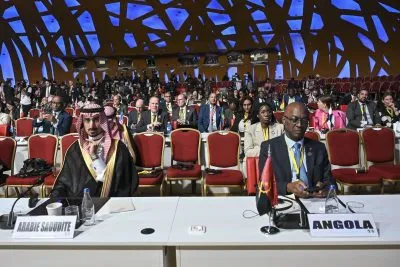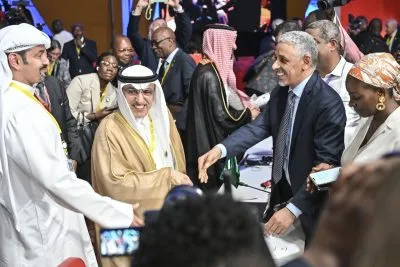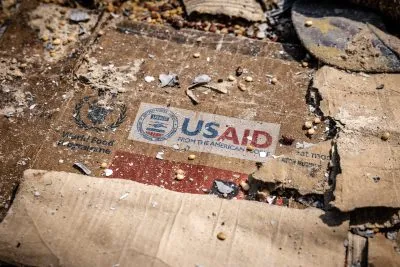In an exclusive interview, Moza Banco CEO João Figueiredo talks to us about the bank’s reaction to the Covid-19 pandemic in Mozambique and its plans for the future.
Mozambique’s Moza Banco first opened its doors in 2008 and in 2011, The Banker magazine ranked it as having the fifth-fastest growth in relation to assets in Africa. In 2014, the bank embarked
on an expansion programme in retail banking and in 2015, Banker Africa magazine considered it the most innovative bank in Southern Africa.
However, after a period of poor economic indicators, the Central Bank of Mozambique intervened to protect stakeholders and appointed a Provisional Board of Directors to set out a recovery programme. Following a series of recapitalisations and the entry of major shareholders, the bank today is the one of the five largest in the country.
In 2019, The Banker magazine presented the ‘Deal of the Year for Restructuring’ award to the bank, reflecting the best financial restructuring for the year at a continental level.
In June, Moza Banco’s CEO, João Figueiredo, spoke to African Banker about the bank’s response to the Covid-19 pandemic and its future plans.
How has the pandemic affected both the economy and the country?
It is still too early to evaluate the overall impact of Covid-19 in Mozambique – we are still at the ‘state of emergency’ level while other countries are already gradually reopening their economies and easing the exceptional measures introduced to combat the spread of the pandemic.
Nevertheless, at the economic level, a dual shock in the national and international supply and demand for products and services has already been noted, due to the interruption of the economic circuit caused by the pandemic.
This has already given rise to a disruption in revenue for businesses and a loss of livelihoods for families in an economy that is also broadly characterised by the informality of economic activities.
We estimate that around 25,000 people’s jobs have been suspended by private companies. Around 1,200 companies opted to undertake job suspensions; of this figure, around 627 have already found themselves in a situation of paralysis.
Income from the country’s main export, coal, fell by around 30% during the first quarter of this year. As a result, the national currency, the metical, has already fallen 12.8% against the US dollar, for the period from January to May.
How has Moza Banco responded to the effects of the pandemic?
Moza Banco places the customer at the core of its strategic position and has supported its customers through measures such as granting moratoriums on debt servicing.
This is in order to alleviate pressure on not only the many citizens who have lost their sources of income, but also the cashflow of companies that have experienced a dramatic decrease in their activity.
At the end of May, the bank and its partners signed a contract that will operationalise the Enterprise Fund for Portuguese Cooperation (Fundo Empresarial da Cooperação Portuguesa [FECOP]).
This financial instrument was established by the governments of Portugal and Mozambique to support Mozambican micro, small and medium-sized businesses and aims to strengthen and aid the recovery of economic activity and investment in Mozambique.
By guaranteeing 80% of the capital in firms to support the cash flow or investment, with interest-rate subsidies and more favourable grace periods, this instrument will ensure that Mozambican companies can address their immediate needs, retain jobs and resume their normal economic activity.
Since the coronavirus was declared a pandemic, we have, through a marked reduction in our commissions, been incentivising the use of digital channels, so that our customers can continue to carry out transactions and manage their accounts from the comfort and safety of their own homes.
We also extended the period of validity for all debit and pre-paid cards that are due to expire between the months of June and July, extending this until 31 August.
As a socially responsible bank, we are closely monitoring the evolution of the Covid-19 situation in Mozambique and worldwide and are implementing a set of hygiene and safety measures recommended by the Mozambican National Institute of Health (Instituto Nacional de Saúde [INS]) and the WHO, as well as the extraordinary measures ratified by the Mozambican government.
In addition to disinfecting and cleaning our offices, branches, ATMs and kiosks, it is compulsory for all our staff to wear masks when dealing with customers and use gloves when handling bank notes.
Which sectors of the economy will suffer the greatest impact?
While no sector of economic activity will be exempt from the adverse effects of Covid-19, sectors such as tourism and related activities (hotels, restaurants and entertainment venues), the manufacturing and extractive industry, transport, construction and commerce and services are the most vulnerable.
Unfortunately, the impact of the measures already introduced by the authorities has not been sufficient to stem the wave of closures of businesses; this is largely due to the tight economic climate and the high level of debt, which amounts to around 110% of GDP.
Covid-19 could also affect the natural gas sector in terms of investment decisions and start-up periods for the projects in the Rovuma Basin, which are hotly anticipated due to the substantial stimulus that they would provide for the country’s economy.
What are the strategic areas of investment for relaunching the economy post Covid-19?
To my understanding, the geopolitical situation will reveal many and good reasons for a redefinition of economic strategy at a global level. International trade was experiencing a redirection towards a major protectionist line. This trend could be further accentuated. On the other hand, the beginnings of a Cold War between the US and China could constitute an excellent opportunity for other emerging economies.
In this sense, Mozambique could create conditions to position itself to attract interest from global investors and offer the country as a preferential geographical space.
We Mozambicans need to ensure we take advantage of this opportunity with the creation of a regulatory environment that is favourable to local and foreign investment in the short to medium terms.
In the context of a new social distancing paradigm, the telecommunications sector can also reinvent itself to enable the uninterrupted and efficient interaction of families and companies at increasingly reduced costs.
Moza Banco has grown sustainably year on year. What has been your strategy?
Unfortunately, the bank’s history has not been linear since its foundation. Along the way, we have experienced some difficulties that culminated in an inevitable and timely intervention undertaken by the central bank (Bank of Mozambique) in 2016.
Since then, the bank has had an incredible performance not only in recovering the confidence of its customers and of the market, but also its economic and financial indicators.
This process was helped by the entry of new investors who acquired the majority of the institution’s capital (Kuhanha and ARISE), as well as the acquisition that we made of Banco Terra (a niche bank).
One of the main complaints from businesses concerns high interest rates (prime rate at 18%). When will it be possible to lower this?
The prime lending rate has already been lowered on several occasions, in April and May of this year, and is currently at 16.9%.
The trend for prime rate cuts is consistent with the region’s monetary policies – however, while they present an immediate alleviation to families and businesses in terms of servicing debt, we do not consider this policy as a decisive factor in boosting economic activity in the current situation.
Which sectors of the economy is Moza Banco prioritising?
The bank is developing its commercial strategy in retail banking (including private individuals and businesses), institutional banking, private banking, corporate banking and investment banking.
This integrated and functional structure enables Moza to invest in all sectors of the economy,
presenting value proposals that are adapted to the specific characteristics of each sector and customer segment.
To highlight the importance of the agricultural sector and rural development, we recently created an agribusiness unit to provide advice and support to the different companies, entrepreneurs and projects in the sector.
Are you confident in an upturn of the economy this year?
We anticipate that the economic recovery should start from the fourth quarter of 2020, and that there is likely to be a greater impetus from the second half of 2021.
This is also the point at which we anticipate the resumption of investment in natural gas exploration, as declared through the FID.
Mozambique has already announced the receipt of SDR227.2m, approximately $309m, from the IMF, to help the country fulfil the country fill its immediate needs in terms of the balance of payments and tax impacts resulting from the Covid-19 pandemic.
However, I must warn that the availability and pace of approval of additional support from Mozambique’s cooperation partners, could also determine accelerating or delaying the point at which the economy recovers. This is a critical factor that we really have to emphasise.
What are the greatest challenges you have faced and continue to face at the bank?
I faced this challenge in the same way that I face all other challenges I have embraced throughout my professional life – with dedication, diligence, and a huge sense of responsibility.
When I was invited to take up the role at the bank, the invitation was addressed to me by the governor of the central bank, as part of the intervention the bank underwent in 2016.
Given the size of the bank and what it represented for the banking sphere, the first major priority was to avoid a systemic risk in the financial sector.
The second major objective was to conduct a diagnosis of the bank, examine the reasons for the situation that it found itself in and attest to its viability.
It was a challenging task on an unprecedented scale for me, since I had never encountered such a situation in my entire professional experience.
This first project ended up going very well, and it culminated in a capital increase which was fully subscribed by a new shareholder, Kuhanha, which now holds a majority stake in the bank.
This mission, to avoid the collapse of the bank and, at the same time, proceed with everything this process entails, would end up being a hugely testing exercise.
From the effort to recover customer confidence, to the design of an initial financial clean-up plan that demonstrated the future viability of the institution, through to the procurement process for potential investors – everything was a fantastic experience that I will never forget.
Doing all of this, keeping the bank operational, boosting the morale of our employees and getting them to believe in the project was in fact a wonderful experience.
In having gone through that process, the greatest challenge was already overcome. Now we just need to provide structure to our shareholder and management strategy, reciprocating the belief and confidence that was placed in us; we will demonstrate through actions and hard work that this is simply one more challenge to surmount.
Want to continue reading? Subscribe today.
You've read all your free articles for this month! Subscribe now to enjoy full access to our content.
Digital Monthly
£8.00 / month
Receive full unlimited access to our articles, opinions, podcasts and more.
Digital Yearly
£70.00 / year
Our best value offer - save £26 and gain access to all of our digital content for an entire year!

 Sign in with Google
Sign in with Google 


